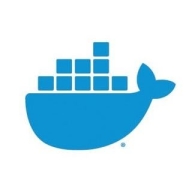

Legit Security and Docker compete in cloud security and container management. Docker seems to have the upper hand with superior container orchestration capabilities for seamless application deployment.
Features:Legit Security offers unified application security control, integration with AppSec tools, and comprehensive visibility into software development. Docker provides containerization, efficient resource usage, and easy integration with other solutions.
Room for Improvement:Legit Security can improve its secret detection feature and address false positives. Enhancing reporting capabilities and expanding integration options could also be beneficial. Docker may improve orchestration features, streamline networking configurations, and offer enhanced security insights.
Ease of Deployment and Customer Service:Docker offers streamlined deployment with extensive documentation, providing seamless integration into existing workflows. Legit Security may require more implementation effort due to its comprehensive security protocols, but its integration with tools like Okta and Jenkins is advantageous.
Pricing and ROI:Legit Security justifies its setup cost with significant prevention of costly breaches, while Docker provides a favorable ROI with competitive pricing and efficient resource management. Docker's containerization technology makes it a compelling investment for modern application deployment.
| Product | Market Share (%) |
|---|---|
| Docker | 5.0% |
| Legit Security | 4.6% |
| Other | 90.4% |

| Company Size | Count |
|---|---|
| Small Business | 22 |
| Midsize Enterprise | 4 |
| Large Enterprise | 34 |
Docker provides a robust containerization platform, enabling identical environments across machines. With features like portability, fast deployment, and minimal resource consumption, Docker supports development, facilitating multitier architectures and integrating seamlessly with Kubernetes.
Docker offers an advanced containerization solution that enhances application management through automation and security measures. By isolating environments and managing dependencies, Docker supports platforms for scalable application development. Its integration with orchestration tools like Kubernetes and independence from host operating systems enable developers to create lightweight applications effectively. Although known for its cost efficiency and flexibility, Docker could improve in areas such as stability, command-line usability, and Windows performance integration. Users also point out the need for enhanced documentation, simplified management tools, and better persistence storage options, along with stronger marketing and easier user adoption.
What important features does Docker provide?Industries leverage Docker for application packaging, deploying microservices, and CI/CD processes. It supports DevOps, enhances backend service management, and enables resource-efficient development environments. Docker's compatibility with tools such as Jenkins ensures seamless integration and orchestration in modern IT workflows.
Legit Security provides application security posture management platform that secures application delivery from code to cloud and protects an organization's software supply chain from attack. The platform’s unified application security control plane and automated SDLC discovery and analysis capabilities provide visibility and security control over rapidly changing environments and allow security issues to be prioritized based on context and business criticality to improve security team efficiency and effectiveness.
We monitor all Software Supply Chain Security reviews to prevent fraudulent reviews and keep review quality high. We do not post reviews by company employees or direct competitors. We validate each review for authenticity via cross-reference with LinkedIn, and personal follow-up with the reviewer when necessary.